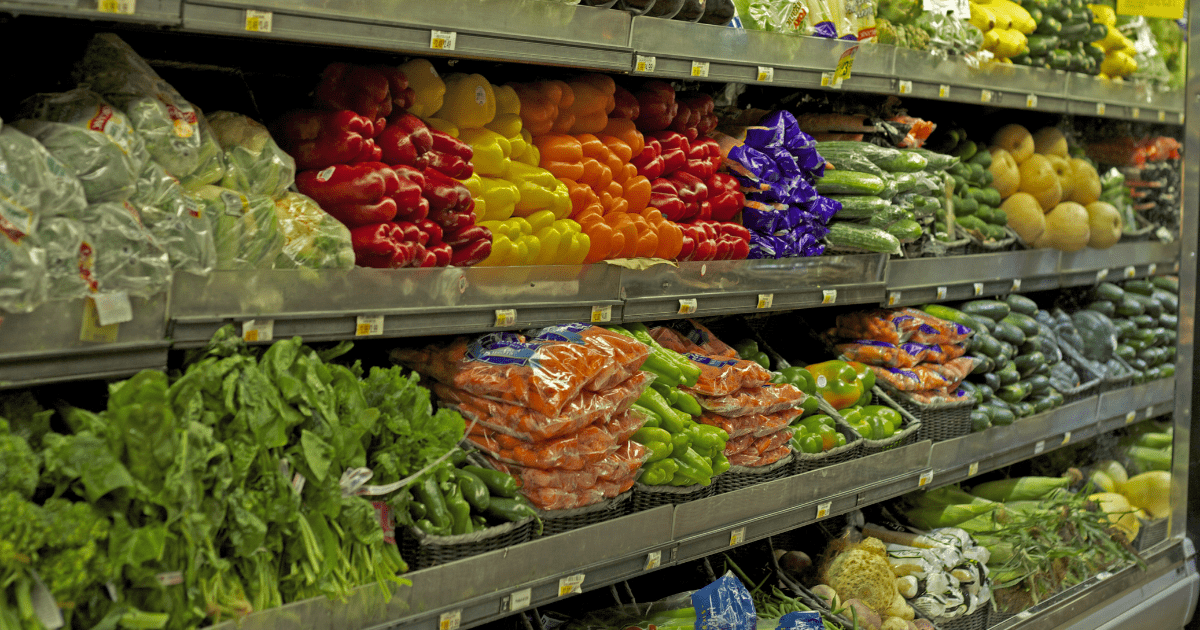Fruits and vegetables make a perfect and healthy meal. That’s why we often shop for them in the grocery stores and keep them in the fridge to keep them fresh. However, how fresh is the product you’re picking up?
Do you want to learn how old the produce in your grocery store really is?


Fruits and vegetables in the grocery store can be fresh from the ground, newly harvested, trees, bogs, or bushes. However, there are cases when it’s much older than that. But, how do you truly know?
Truthfully, the answer to your question depends on where you purchase the product.


Purchasing fruits and vegetables at organic, growers-only farmer’s markets, then it is relatively fresh. If you are buying on a large, national chain supermarket, the product may have been in storage for weeks or even months before you took it home to eat. Imagine coming home with fruit not knowing it has been stored for weeks.
Here’s how old the produce in your grocery store is really.


You may want to take notes because we will give you a thorough discussion. It will also help you the next time you went out to the groceries. Additionally, you’ll be mindful the next time you purchase a product.
1. Lettuce


Based on Jo Robinson, journalist, and author, bagged lettuces can be two weeks old which means it has lost some of its health benefits. Lettuce doesn’t hang out for months, so if you plan on adding more lettuce to your salad for its benefits, you may be disappointed.
2. Carrots


You may think that the carrots you brought home are newly harvested, but they may not be. According to The Guardian, carrots sold in grocery stores can be stored anywhere from one to nine months. It really depends on how they’re processed. Usually, carrots that have greens in them are more perishable.
3. Apples


Apples you bought in the supermarket are chemically treated to avoid rotting and stored for 12 months. Definitely, not as fresh as you think it is. It’s best to buy apples during the apple season because it is fresh. However, if you purchase one in April, July, or January, then it may not be farm-fresh.
4. Aloe Leaves


You can pick up aloe leaves in the produce section of farmers’ markets, grocery stores, and farm stands. You can see if the aloe leaves are still fresh or not based on the physical aspect. Fresh leaves are nice and green, while old leaves are speckled with brown spotting.
5. Orange juice


Packages often deceive us by saying that orange juice is fresh produce. Based on Alissa Hamilton, most orange juice is processed and pasteurized for it to last. Then it will be placed in huge storage tanks where it can be kept for upwards of a year. If you love drinking orange juice, you may reach for an actual orange than a juice. Although there’s nothing wrong with drinking a bottle of orange juice, you can opt for a more healthy version by eating the fruit.
6. Cranberries


Cranberries are often sold immediately after being harvested. So, if you are looking for fresh fruits then pick cranberries. You can buy one during September, October, and November, while, at other times of the year, frozen cranberries are your best option.
There are a lot of healthy and organic meals you can create using these ingredients. If you are particular in gaining the nutrients of fruits and vegetables, then you need to make sure you are buying them fresh from harvest. Take note of these, so you are aware the next time you buy your groceries.
Share these tips with your friends and family.
Please SHARE this with your friends and family.















